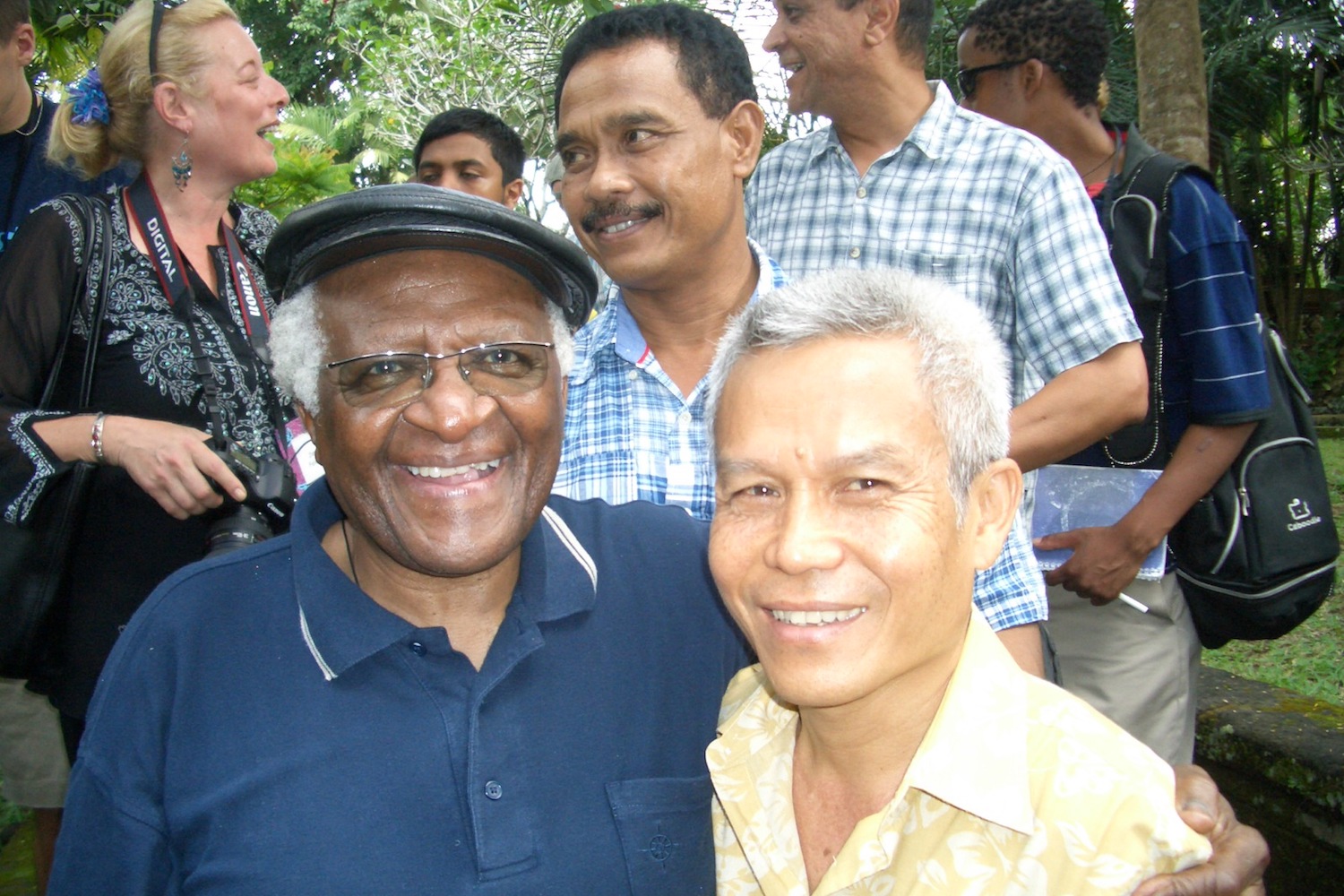The Irrawady: 31 August 2013
By Marwaan Macan-Markar

BANGKOK — At a recent reception in Vientiane, a Western diplomat approached a senior Laotian government official with a query about Sombath Somphone, a respected civil society leader who was grabbed off the streets of the capital on a December evening and has not been seen since. The question elicited a rebuff.
“It is the standard official reaction,” a foreign guest at the reception recalled. “They get into denial mode even though there is CCTV footage of Sombath being forced into a vehicle near a police post in Vientiane.”
A similar wall of silence and denial was erected days later, when a delegation from the European Parliament landed in the Southeast Asian nation on a fact-finding mission over the whereabouts of the soft-spoken 61-year-old. “The Foreign Ministry [officials] presented ridiculous lies that the man abducted wasn’t Sombath,” said the visibly irate Danish lawmaker and head of the delegation, Soren Bo Sondergarrd, speaking to journalists in Bangkok on Wednesday. “They are unwilling to get deeper into this case.”
Sondergarrd’s delegation was the third made by foreign lawmakers, both from Europe and from Southeast Asia, since January this year. And a fourth from Europe is expected on Oct. 28—an indication of the increasing pressure the notoriously secretive communist government is under from the international community.
“There has never been such mobilization around one person before, considering that prior human rights abuses in Laos have attracted little attention,” Anne-Sophie Gindroz, policy and advocacy advisor of Helvetas, a Swiss development agency, told The Irrawaddy. And Gindroz should know, since she was forced out of Laos, abruptly ending her work in the agriculture sector, a week before Sombath was “disappeared.”
But behind this façade of blank looks and “insulting denials” another story is unfolding. A campaign is underway within the hierarchy of the Laos People’s Revolutionary Party (LPRP)—which has ruled the country with an iron grip since the mid-1970s—and sections of the government to “slander and discredit Sombath,” a Vientiane-based source with links to official circles revealed. “They are sending the message right down to some village levels of the party to condemn Sombath.”
Even cabinet ministers have displayed this touch, as one did during a preparatory session ahead of the mid-year sitting of the rubber-stamp National Assembly. He discussed Sombath’s work in “a negative way” and even refused to touch a book authored by the disappeared civil society veteran that had been on display at the session, according to a bureaucrat who had been present.
Early signs of this strategy emerged in January, when the government of the landlocked, impoverished country released its first official response. “It may be possible that Mr. Sombath has been kidnapped perhaps because of a personal conflict or a conflict in business or some other reason,” stated Yong Chanthalangsy, Laos’ ambassador to the United Nations in Geneva, in a statement that was published in the state-controlled Vientiane Times newspaper.
Such a view was immediately pooh-poohed by locals and foreigners familiar with the work of Sombath, a winner of the Magsaysay Award, the Asian equivalent of the Nobel Prize, for his decades in rural development. They link his enforced disappearance to the leading role he played at last October’s meeting of the Asia-Europe People’s Forum (AEPF) in Vientiane. That four-day event, held ahead of a summit of Asian and European leaders, attracted an unprecedented gathering of local and international community activists.
In the run-up to the 2012 AEPF, international development organisations and analysts based in Laos viewed the gathering as a sign of the country loosening its grip on community activism and opening to the world. “The Foreign Ministry had approved the space for civil society at the AEPF as proof that the country was comfortable with different views,” says Shalmali Guttal, senior researcher at Focus on the Global South, a Bangkok-based think tank. “It fit in with the attitude of Laos policymakers over the previous five to six years of reaching out to their own people, their critics.”
But the aftermath of the AEPF proved both Guttal and Sombath wrong. Hawks within the party hierarchy and the security establishment had reportedly become alarmed, according to a diplomatic source, about some of the issues openly raised at the AEPF. They saw red at local communities and villagers complaining about being displaced or affected by the loss of land given to foreign investors.
Ounkeo Souksavanh, a local journalist who hosted a popular radio program, had already got a foretaste of the government’s displeasure. A weekly call-in show that he ran for four years was abruptly pulled off the air in January last year. “I had a hotline that the audience could call and they often talked about the rise in land conflicts in their community,” he recalled.
Laos, which opened its abundant natural resources to foreign investors in 1996, has attracted many foreign companies from Vietnam and China. An estimated two million hectares have been leased out or given as concessions, accounting for some 2,000 approved projects. They range from copper and gold mines to industrial scale rubber and cassava plantations.
The state’s heavy-handed response to criticism has prompted Ng Shui-Meng, Sombath’s wife, to tread cautiously in the tireless quest for her husband. The Singapore national was travelling ahead of him in a car on that fateful evening of Dec. 15. Sombath was in his battered old jeep, heading home for dinner, when he was stopped at a police post at one of the busiest intersections in Vientiane. That scene and his being led to another vehicle were captured on a CCTV camera, proof of which Shui-Meng has.
“I have deliberately not accused the state in my comments over the past eight months,” the former UNICEF staffer admitted in an interview. “I have no bargaining chip on my side except to promise silence. And I don’t know if I am doing the right thing or the wrong thing.”
